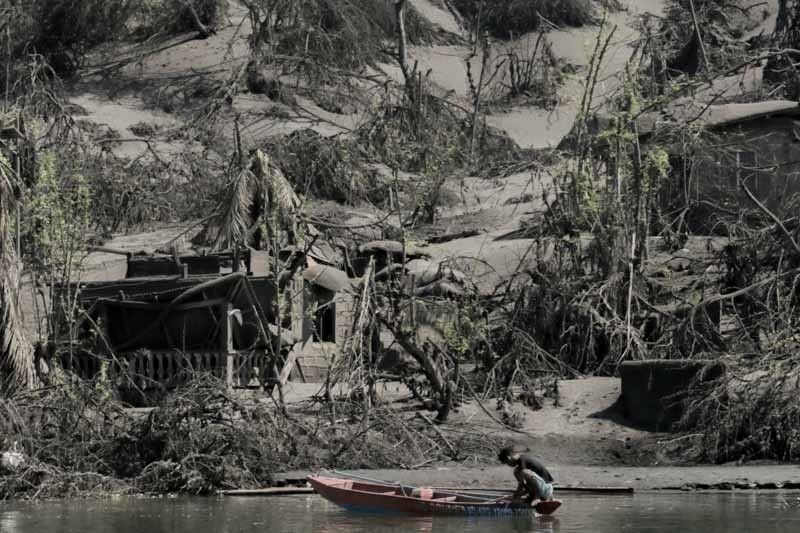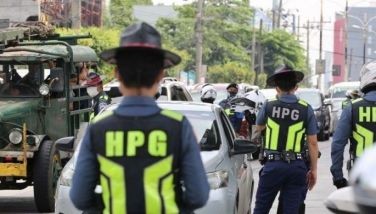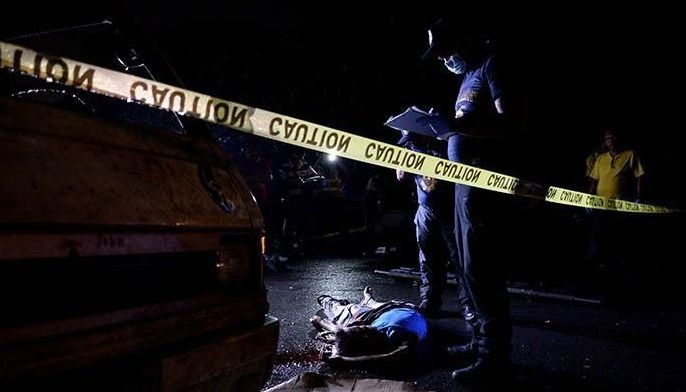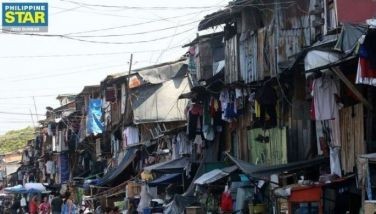Future uncertain for communities displaced by Taal volcano, trapped by coronavirus

MANILA, Philippines — On the afternoon of January 12, Taal Volcano in Batangas woke up from its more than 40 years slumber, spewing columns of ash and lava fountains into the sky.
Fallen ash, along with earthquakes, destroyed homes and establishments in Batangas. Hardest hit were the residents of the volcano island—home to fisherfolk and tourist-dependent families—their communities buried in desolate sand dunes.
Half a million residents in CALABARZON were affected by the eruption. By February, more than a thousand families or over 4,000 individuals remained in evacuation centers.
Taal’s status was lowered to Alert Level 1 on March 19 following decreased occurrence of volcanic earthquakes and surface activity at the main crater. But the problem of those living in Batangas and nearby provinces is not yet over.
Just when they were beginning to pick themselves up, the number of new coronavirus infections in the country started to rise.
“We still haven’t fully recovered from the eruption, then this happened,” Ana Banaag, an Alternative Learning System teacher in San Luis, Batangas told Philstar.com in Filipino.
Food supply running out
Batangas Gov.Hermilando Mandanas said the eruption of Taal two months ago served as a “dry run” for the residents of the province in facing the threat of a growing health crisis.
Mandanas told ABS-CBN New Channel last March that those who were severely affected by the volcano’s eruption were able to store large amounts of food donated by various people and groups.
Banaag, who teaches an Aeta community in San Luis town, said the eruption gave the community of around 69 families a buffer supply of food but she stressed that the donations are running out.
"Many people donated food items and the community was able to at least fix their homes... But they said they want the outbreak to end because their food supply won't last long. They cannot work to get money for more," she said.
Reynald Desepedo and Jodie Manzano—evacuees from Sitio San Isidro on Taal's volcano island—face the same predicament.
They were forced to seek temporary shelter in Aya Elementary School in Talisay town after their houses were buried in massive deposits of ash and their sources of livelihood were wiped out.
But since the Luzon-wide lockdown began on March 17, no one has distributed relief items to the displaced households.
Not even the local government has reached out to them, Desepedo, a former tourist guide, claimed.
“Aid doesn't reach us here, that's why our situation is difficult,” Desepedo told Philstar.com, adding their supply of food will last for only two weeks.
President Rodrigo Duterte on Monday announced a P200-billion aid package for low-income households and other sectors hit by the strict quarantine measures intended to contain the spread of the contagion. But the government has yet to disburse cash aid for poor families.
“Our biggest need here is financial assistance. We cannot live on noodles and canned goods daily. It's harder because people do not have work,” Manzano said.
School closures add to uncertainty
Classes in schools in the province were suspended for three weeks after buildings and classrooms were affected largely by ashfall and earthquakes.
Several schools within the 14-kilometer danger zone of volcano resumed classes on February 3. To make up for classes that were disrupted by the eruption, class hours were extended during weekdays were held during weekends.
But as COVID-19 cases started to pile up, the government placed all of Luzon under enhanced community quarantine on March 17, restricting movement of millions and forcing business and even schools to temporarily shut down.
Classes and all school activities will only resume on April 15, if that.
Closures prompted educational institutions to shift classes online but not every student can comply with requirements using online or distant learning mode.
"I'm worried about my classes. If I can even graduate," Manzano, a college student, said.
Because a Wi-Fi connection is a luxury for Manzano, the fourth year Education major has to buy prepaid load so she can study online.
"Online classes are difficult during this crisis, we need to cut costs. But sometimes we need to buy prepaid load so we can go online for the assignments," she said.
The Commission on Higher Education earlier asked universities and colleges to “exercise leniency and help students during these difficult times.” CHED also urged higher educational institutions not to collect tuition fees and suspend penalties for late payment.
When isolation is impossible
Batangas has so far reported 37 COVID-19 infections—three of whom have died. There are additional 301 patients under investigation and 3,057 persons under monitoring in the province.
Because the new coronavirus is transmitted through droplets that can be picked up with one touch or inhaled from an infected person’s cough or sneeze, authorities say the best protection is staying home.
"Home has become the frontline defense against the coronavirus. Home has rarely been more of a life or death situation," Leilani Farha, UN special rapporteur on the right to adequate housing, said.
But isolation is an unreachable luxury for thousands of families in Batangas who do not have homes to return to.
The new virus is a huge concern for evacuees like Manzano, who worries those who are seeking temporary shelter in evacuation centers are at higher risk of catching and transmitting COVID-19 to others.
At least 20 families stay at Aya Elementary School.
"We are with so many people at the evacuation center. What if one of them has the virus? Then all of us might get sick," Manzano said.
"It is so difficult for us evacuees to not have a house to go home to, especially now that we're waiting for housing assistance. We don't know if we will really get the help we need from our mayor," Manzano said.
The provincial government provided a temporary relocation site in Ibaan town for those who fled their homes on the island but Desepedo said it is too far from where they used to be.
"We remain hopeful for the help, for housing. We're still hopeful because we cannot do much except wait for the government to help us," he said.
- Latest
- Trending

































